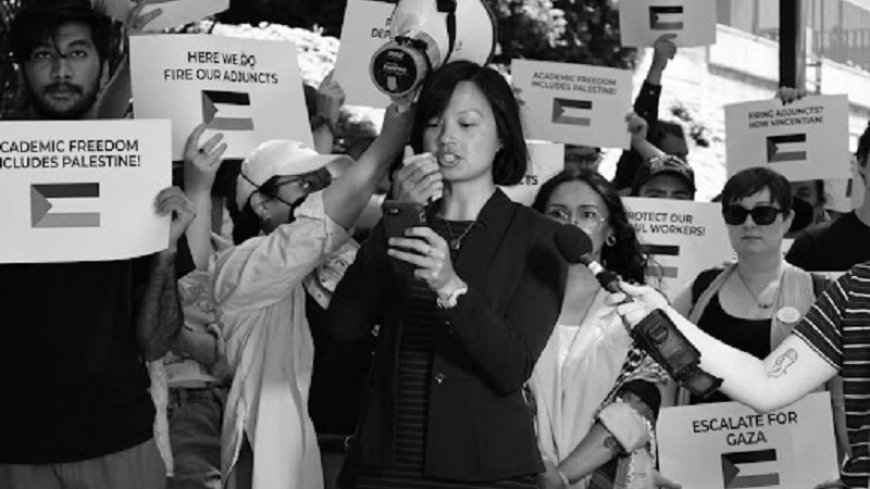Professor's Dismissal Over Genocide Research Sparks Controversy at DePaul University

A DePaul University professor was dismissed after offering students an optional assignment on the Gaza war's impact, igniting a debate over academic freedom and the boundaries of sensitive topics in education. Anne D'Aquino, a faculty member in the Health Sciences Department, was removed from her teaching position last month. The controversial assignment asked students to evaluate the impact of the Gaza conflict on human health and biology, a topic that has generated significant tension within the academic community.
D'Aquino publicly addressed her dismissal for the first time during a press conference earlier this week. "My dismissal is a violation of academic freedom and another example of this administration's efforts to turn any discussion of Palestine into false allegations of anti-Semitism," she stated.Support for D'Aquino has grown, with around 50 individuals gathering at DePaul University to protest her dismissal. Demonstrators waved Palestinian flags and held banners proclaiming, "Academic freedom extends to Palestine." The protestors emphasized the importance of maintaining an open dialogue on global issues within educational institutions.
In a show of solidarity, students delivered a petition to the administration office in DePaul's Science Building, demanding D'Aquino's reinstatement. The petition garnered over 1,500 signatures, reflecting widespread support from the student body.D'Aquino filed an appeal nearly three weeks ago, but university officials have yet to issue a definitive response. The administration has not commented publicly on the case, citing the confidentiality of personnel matters.
The controversy at DePaul University is set against a backdrop of ongoing violence in Gaza. Since October 7, 2023, when new attacks began, reports indicate that over 37,000 Palestinians have been killed and more than 85,000 injured. These figures underscore the gravity of the conflict and the significance of academic discussions on its humanitarian impact.
The debate over D'Aquino's dismissal raises critical questions about the role of academic institutions in addressing contentious global issues and the protection of academic freedom. As the university community awaits a resolution, the case continues to draw attention to the broader challenges of discussing politically sensitive topics in academia













































